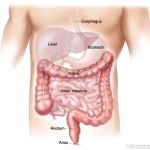Green Tea and Neurodegenerative Diseases
By Justin H. Joe, Ph.D. & H. S. Jeon, Ph.D.
With the prolonging of the lifespan in humans, many age-related diseases are becoming more of a problem. While there have been numerous studies on neurodegenerative diseases, studies on the effects of green tea on neurodegenerative diseases have only fairly recently been undertaken. Current research shows that because green tea has natural and potent anti-oxidative properties, drinking green tea regularly can have neuro-protective effects.[1]
Neurodegenerative diseases are disorders that affect the neurons in the brain. These diseases are not curable and progressively get worse as the nerve cells degenerate or die over time. This can cause huge problems in mental functioning.[2] This loss of mental function/ cognitive function and behavioral abilities is called dementia.[3] Commonly known diseases that fall under dementia include Alzheimer’s disease, Parkinson’s disease, and vascular dementia. Alzheimer’s disease and vascular dementia are considered primary types/causes of dementia. Alzheimer’s disease can also be considered a vascular disorder (disorder involving the interruption of blood flow to the brain).[1]
Output

By Kevin D. Ham, M.D.
Vancouver, BC, Canada
We breathe, drink and eat in order to provide the necessary nutrients to build and maintain the cells of our bodies, but we must also remove any metabolic waste products produced by the cells and any substances that are either harmful to the body or no longer of any use to the body.
We excrete these waste products by breathing, sweating, urination and defecation.
Breathing facilitates the removal of metabolic by-products, such as carbon dioxide, from the blood through constant breathing. Breathing can also eliminate volatile toxicants such as ethanol or pesticidal fumigants as well as volatile metabolites including acetone and carbon dioxide. Read more…
Mind

By Kevin D. Ham, M.D.
Vancouver, BC, Canada
The mind is responsible for the ability to be aware of the environment, to think and to react. The brain plays a central role in the function of the mind. There is a close connection between the blood and the brain through various routes such as the hypothalamus, a small part of the brain.
Health is defined not merely as the absence of disease or physical illness, but also the social, mental and emotional well-being of a person. Read more…
Copyright © 2011 Hemato-Centric Life Institute